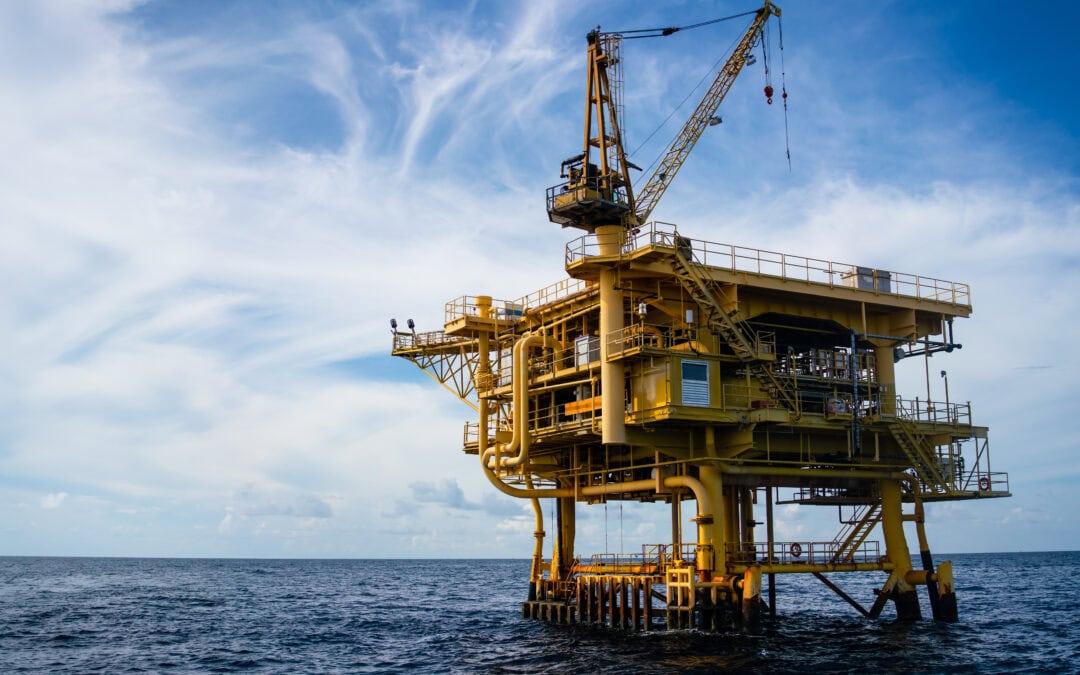The offshore oil & gas industry is widely known to have dangerous working conditions. Each year, the Bureau of Safety and Environmental Enforcement collects hundreds of offshore incident reports, which include reported injuries, fires, explosions, collisions and more.
Understanding Offshore Accidents
An offshore accident is any mishap or injury that takes place in offshore facilities, primarily in oil rigs and shipping vessels, but also includes accidents on platforms, barges and other structures located in bodies of water. These facilities, often located several miles out at sea, are places of high-risk for a variety of accidents.
Common Causes of Offshore Accidents
Offshore accidents can stem from many different factors, but listed below are some of the most common.
- Equipment Malfunction: The machinery and equipment used in offshore operations are complex and require regular maintenance. Any malfunction or failure can lead to dangerous situations resulting in accidents.
- Human Error: Mistakes made by workers due to lack of training, fatigue, or negligence can result in severe accidents. This can include mishandling of equipment, failure to follow proper safety procedures or mistakes made during operations.
- Adverse Weather Conditions: Working offshore means facing unpredictable weather conditions. High winds, rough seas and poor visibility can all contribute to accidents.
- Fires and Explosions: Oil rigs and other offshore facilities handle highly flammable substances. Any leaks or spills can lead to fires or even devastating explosions if not managed promptly and properly.
- Gas Releases: These can occur due to equipment failure or human error and can lead to suffocation, toxic exposure and even fires or explosions. Gas releases not only pose a direct threat to the workers at the facility, but they also often lead to evacuation, halting productivity and costly repairs.
- Collisions: Given the massive size of ships and offshore structures, a collision could lead to extensive damage and potential injury or loss of life.
- Spills: A spill can create a slippery surface that could result in falls or injuries. Additionally, the exposure to these substances can lead to serious health problems for the workers. Furthermore, such spills can lead to significant environmental damage, which can result in additional legal issues and penalties.
Understanding these causes highlights the need for strict safety protocols in offshore operations.
Immediate Actions to Take After an Offshore Accident
If you or a loved one is involved in an offshore accident, taking the right steps is important to your safety, legal rights and potential compensation.
Safety First: Ensuring Personal Well-being
Your health and safety are of utmost importance. Immediately after an accident, seek medical attention, even if you feel you have not been badly hurt. Some injuries, like concussions or internal injuries, may not show immediate symptoms but could still pose serious health risks. Prioritize getting professional medical help and follow all prescribed treatments closely.
Documenting the Incident: Importance of Evidence
Once you’ve addressed any immediate medical concerns, start documenting the accident. This can be instrumental in any future legal proceedings. This process entails taking photographs of the accident scene, your injuries and any equipment that may have been involved. If there were any eyewitnesses, gather their contact details and statements, if possible.
Maintaining a record of your medical treatments, expenses, and any lost wages is also essential. This documentation can serve as strong evidence when claiming compensation.
Reporting the Offshore Accident: Adhering to Protocols
Reporting the accident promptly to your employer or supervisor is vital. Many companies have specific protocols for such incidents, and failing to comply may affect your compensation claim. Ensure that you provide a detailed report, including the date, time, location and circumstances surrounding the accident.
How an Offshore Accident Attorney Can Help
An offshore accident attorney can be important to protecting your rights and securing fair compensation in the aftermath of an offshore accident. These legal professionals are typically well-versed in maritime laws and regulations. They can also assist in collecting and organizing evidence, negotiating with insurance companies and even fighting for your case in court if needed.
Claiming Compensation After an Offshore Accident
Claiming compensation after an offshore accident can be a complex process, but understanding your rights and the course of action can make a significant difference.
Understanding Your Legal Rights
There are several laws in place to protect offshore workers, such as the Jones Act and the Longshore and Harbor Workers’ Compensation Act. These laws are designed to provide compensation for medical bills, lost wages, pain and suffering, and other damages sustained in an offshore accident. An offshore accident attorney can help you understand which laws apply to your case and how you can leverage them for a compensation claim.
The Compensation Process: What to Expect
Initiating the compensation process begins with reporting the incident to your employer and ensuring all necessary medical treatments are received and documented. The compensation claim itself generally involves negotiating with the employer’s insurance company, who may be liable for covering your damages.
An insurance company may often deny claims or underestimate injuries and required compensation. Having an experienced offshore accident attorney by your side during this process can be invaluable. They can effectively handle negotiations, ensuring that your rights are protected and fight for you to receive the fair compensation you deserve. In cases where negotiations do not yield satisfactory results, your attorney may advise taking the case to court.
Working with Talbot, Carmouche & Marcello
Our team understands the complexities of maritime law and the unique challenges of offshore cases. At Talbot, Carmouche & Marcello, we are committed to defending the rights of offshore workers and fighting for the compensation they rightfully deserve.
If you or a loved one has been the victim of an offshore accident, schedule a free consultation with us today.

